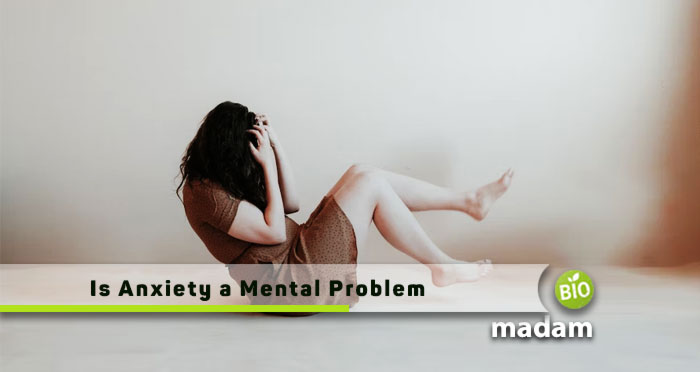Recently updated on October 4th, 2023 at 10:12 am
About 3.1% of people across America have something called Generalized Anxiety Disorder and Phobic Disorder. This makes it one of the most common mental health problems out there.
Here, we are going to talk about anxiety, what it is, and how you can cope. Read on to get your life back on track and feel as well as possible.
What is Mental Health?
Mental health is made up of our emotional, social, and psychological well-being. The state our mental health is in will change the ways that we think and act.
We also have feelings based on our current mental health. Those without mental illness may be happy while those with anxiety, stress, or depression may be irritable, scared, or worried.
Mental health is super important for people from all walks of life. Kids need to keep up with their mental health so they can forge relationships and grow over time. Adults need to keep up with theirs for the same reasons. If you don’t care for yourself mentally, you are going to feel awful and struggle with work and daily activities.
What is Anxiety?
Everyone feels stressed out sometimes. Whether it is a problem at work or a strained relationship, worrying is normal when you are in less-than-ideal situations.
But some people worry excessively about situations that haven’t even happened yet. They are concerned about the possibility of them happening in the future.
For example, there are people who worry about developing illnesses that they show no signs of and have no genetic predisposition for. Others might fear not being able to talk to their friends for several decades. They also may ruminate on one little thing they did wrong, even if the incident happened years ago.
These people usually have a general anxiety disorder. They will need anxiety treatment so they can worry about unlikely scenarios and future possibilities less. This will help them have an overall better quality of life.
Why is it a Mental Health Issue?
Mental illnesses are diseases in your mind. It is like having heart disease or a broken arm but in your brain. This is important because your brain is one of the most important organs in your body. You need to do what you can to keep it healthy!
Anxiety is a mental health issue because it changes your brain chemistry. It stops you from doing daily activities normally.
You are going to have unpleasant physical anxiety symptoms. You also are going to be too worried to make decisions that you are anxious about. This can cause tons of problems at work or in relationships.
Other Types of Anxiety
Anxiety definitely isn’t one size fits all. What we’ve talked about is GAD, the most common anxiety disorder out there. But there are more, including:
- Panic disorder is a problem where the person has panic attacks (that might look and feel like heart attacks when severe enough)
- Post-traumatic stress disorder (PTSD) is a mental health condition under the anxiety umbrella that appears after someone has been traumatized (in military combat, situations of abuse, sexual assault, etc)
- Social anxiety, or severe stress regarding social situations (and avoidance of them)
- Obsessive-compulsive disorder (OCD), where the sufferer obsesses over small things and has small rituals to try to get themselves to feel better
There are some common threads across all these disorders. Muscle tension and excessive worry are the main ones. All of these disorders cause abnormalities in the fight-or-flight response, too. If you have anxiety, you are probably in fight-or-flight even when the situation is totally safe.
All of these types of anxiety are considered mental health problems. They all have different symptoms. In the end, though, all of them require professional assistance. In fact, you will need an expert to even accurately determine which one you are suffering from.
Symptoms of Anxiety
Again, anxiety is an umbrella term. The symptoms are going to be different based on what kind of anxiety disorder you have. People who have GAD usually will:
- Be a little irritable
- Have trouble controlling worry
- Have really tense muscles
- Sleep poorly
- Not be able to concentrate on some tasks
- Be restless and on edge
- Have fatigue problems
But people with PTSD will have things like flashbacks and nightmares of the traumatic event(s). Panic disorder leads to difficulty breathing problems and sleep issues.
Basically, your experience is going to depend on your specific diagnosis. You will need to talk to a mental health professional about what’s happening with you to get the best ideas on what’s happening. A diagnosis and a discussion can go a long way.
How to Fight Against Anxiety
Anxiety is hard to combat. Trying to fight it is literally a battle against your own brain.
Getting professional help is the #1 way you can deal with an anxiety disorder. Therapists and psychiatrists have the professional tools and resources you will need to get better. They can suggest therapeutic activities and exercises. They can also help you understand what’s wrong so you can learn more about your specific problems.
You also can soothe anxiety with CBD. It is known to help with sleep and anxiety so that you can get a better night’s rest. It is totally legal, will relax your muscles, and help relieve both mental and physical tension. Just make sure to ask the psychiatrist before trying it out!

You also can naturally help yourself with breathing exercises. Breathe in through your mouth and out through your nose. Count while doing it for the maximum calming effect.
Mindfulness is also a great idea. When you are mindful, you just need to consider where you are in the moment. Look at your surroundings and find things that you can see, hear, touch, feel, and smell. Bonus points if they are not all the same thing.
This will keep you grounded so you don’t get carried away with worry.
Fight Anxiety the Right Way
Anxiety is one of the most common mental health problems in America. Now that you know the basics, it is time to learn more about fighting against anxiety and taking your life back.

Hi, they call me Jenna, and I am also known for achieving a gold medal during my Ph.D. in science life. I always had a dream to educate people through my utmost writing hobby. So, I chose this blogging path, and Biomadam gave me this opportunity to present for them. I now stand to entertain you. Continue reading my articles & discuss if you’ve any confusion through the comment section below.

